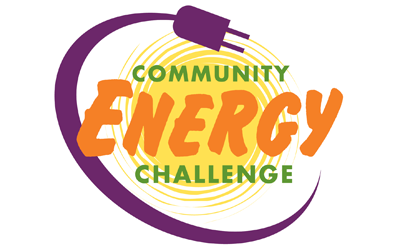Frequently Asked Questions
The Energy Assessment
What happens during an energy assessment?
I had my energy assessment; now what?
How much will an energy assessment cost?
What are some common recommendations?
I already know what efficiency projects I want to do. Do I have to get an assessment?
Will getting an energy assessment help reduce my energy costs even if I don’t have a big upgrade to complete?
We are already extremely energy efficient. Why should we work with the Community Energy Challenge?
Getting the Work Done
Once I get my list of recommendations, how do I decide which ones to complete?
Can I use my own contractor?
Benefits for Participants
Will my energy savings really make a difference?
Are there financial incentives to reduce the final cost of my project?
Is there financing available for my project?
Are there incentives for installing water-saving appliances?
Participation Details
Can I participate if I am renting or if I own rental property?
What if I have a house or home based business?
How do I sign up?
What happens during an energy assessment?
We start by giving an overview of the program, discussing your past energy use patterns and any upgrades you are currently contemplating, and learning more about your business’s priorities. The key person/people attending should be someone who can make budgetary decisions about efficiency upgrades (owner/manager), and/or someone with access to the utility rooms and familiarity with systems and equipment in the building (facility manager).
We then walk through the building and assess all major energy systems – such as lighting, the building envelope, HVAC, and operational practices – to look for energy-saving opportunities. This takes up to several hours depending on the size of your facility.
During the assessment we will also look for opportunities to provide items we can install for FREE under our Quick Fix program, such as screw-in LED lighting, low-flow water fixtures, or plug timers (up to a $1,000 value per business).
If we feel that there is additional analysis that needs to be done with special equipment, or requires outside specialists, we will discuss next steps at the end of the assessment.
I had my energy assessment; now what?
After your assessment, the CEC will provide you with a report outlining personalized recommendations and meet with you to develop an action plan.
It is up to you to complete the recommendations with your own staff and contractors, but the CEC is available for ongoing support/project management, to help you apply for incentives, and answer any questions you have about your action plan.
Be sure to let us know when you complete measures recommended in your Action Plan, so we can highlight all of your positive efforts to save energy. We can also help get the word out to your customers and the public about the good work you are doing.
How much will an energy assessment cost?
The assessment fee is highly subsidized by our funding so we can offer this service way below market value. There is a one-time assessment flat fee priced at $100 per facility. There is a 50% discount for nonprofits and Tribes.
What are some common recommendations?
Among the most common recommendations we make are changes to thermostat settings and schedules, lighting and lighting control improvements, rooftop solar panels, recommendations on furnace or air conditioning replacement options, and assistance with troubleshooting comfort issues.
I already know what efficiency projects I want to do. Do I have to get an assessment?
We think it’s still important. The assessment is necessary to measure exactly where and how much work needs to be done in your facility. It allows us to calculate the energy savings, potential rebates, and payback periods for potential projects, and run through a variety of scenarios to see what measures or appliances are most appropriate for your business. For example, you may be thinking of installing a more efficient HVAC system, but a thorough assessment could reveal that reprogramming your current system would save you just as much. Our analyst will help you prioritize measures, as well as take advantage of savings from behavioral changes.
There’s no substitute for a thorough energy assessment done by a professional analyst to identify which cost-effective measures will do the most to improve comfort, safety, and energy efficiency in your business, which is why it is a central part of the program and a prerequisite to qualifying for financial incentives through the CEC.
Will getting an energy assessment help reduce my energy costs even if I don’t have a big upgrade to complete?
Yes! An energy assessment will provide a comprehensive list of quick fix and low-cost upgrades, along with long-term solutions. The first steps are usually very simple, with little to no cost, and you can start saving right away.
An assessment also gives you personalized information about how changing simple behaviors in your business can reduce energy use immediately. Participating businesses find that they can save hundreds of dollars per year just with no- and low-cost measures.
In addition, once you have had a CEC assessment, we will be available to easily assist you with project management and rebates if new needs or opportunities arise in the future.
We are already extremely energy efficient. Why should we work with the Community Energy Challenge?
We want to tell everyone about all your success! In a randomized phone survey of local residents, 85% of respondents expressed preference for doing business with companies that are working to save energy. Your customers care, and being a participant in the CEC can help you get the word out about your energy efficiency efforts!
A detailed assessment may also uncover additional savings or spot unexpected energy loss; our on-going monitoring can help ensure that your business stays on track to optimize energy efficiency.
Once I get my list of recommendations, how do I decide which ones to complete?
Your Energy Advisor will go over the recommendations with you at your follow-up meeting and help you make an informed decision about which measures make the most sense for your business. Which recommendations you implement are entirely up to you, but our reports prioritize measures by cost effectiveness.
All guidance through the program is independent from contractors, to ensure that recommended improvements are carried out as objectively and cost-effectively as possible. In other words, we have nothing to gain financially by recommending certain measures, and our goal is to help you come up with a plan that makes the most sense for your situation.
Can I use my own contractor?
We can give you a list of qualified local contractors if needed, but we recognize that you may have existing relationships with contractors, and it’s up to you who you work with. Likewise, if you already have a proposal for a project before you schedule your energy assessment, we will do our best to work with your contractor on the project they have developed. However, in order for your project to qualify for CEC incentives, your contractor must be licensed, insured, and sign our CEC Contractor Agreement.
Will my energy savings really make a difference?
Yes! By increasing your energy efficiency, you can:
■ Save money for your business.
■ Make your building more comfortable for employees.
■ Reduce our dependence on fossil fuels.
■ Stay ahead of rising energy costs.
■ Boost our local economy by working with local, independent contractors.
■ Contribute to our region’s growing reputation as a sustainability leader.
Are there financial incentives to reduce the final cost of my project?
Local utilities offer many rebates and incentives to help make your energy efficiency upgrades more affordable. Your Energy Advisor will let you know when a recommended measure qualifies for a utility rebate, and can assist you in applying for rebates for your project.
In addition, the CEC is also able to provide exclusive rebates to participants of up to $5,000 per site, based on energy savings (capped at 60% of project costs when combined with all rebates). Each participating business is also entitled to a $1,000 budget to be put toward “quick fix” projects, such as screw-in LED lighting, low-flow faucet aerators, power strips, and more.
Is there financing available for my project?
The Community Energy Challenge is partnering with Puget Sound Cooperative Credit Union. PSCCU offers Energy Smart loans, which can be used for many energy efficiency improvements. You can read more about PSCCU’s loan offerings here. (Link to Energy Smart Loan page) Many CEC participants use existing lines of credit, or choose to work with their own financial institutions.
Are there incentives for installing water-saving appliances?
The Community Energy Challenge and the City of Bellingham Water Conservation Program have teamed up to offer rebates on low-volume toilets and other water efficiency measures for City of Bellingham water customers participating in the CEC. You can learn more about the City of Bellingham’s Water Conservation Program here, or call us for more details.
Can I participate if I am renting or if I own rental property?
Yes, both property managers and renters are welcome to apply. We can work cooperatively with building owners and occupants to come up with mutually beneficial energy efficiency recommendations.
What if I have a house or home based business?
If you have a house-based business that operates from a building which was originally intended to be used as a home, but is now used entirely as a business and is on a commercial utility rate schedule, you will receive an energy assessment through the commercial CEC.
If you have a home-based business that is located within a structure that is primarily used as a residence and is on a residential utility rate schedule, you will receive an energy assessment through the residential CEC program. If your home-based business is a member of Sustainable Connections, let us know that you have signed up for the Community Energy Challenge so we can give you proper recognition in our member directory and publications.
How do I sign up?
To sign up for a commercial assessment or get more information about the program, contact us at energy@sustainableconnections.org or 360-647-7093 x112.
The Community Energy Challenge is a joint project between Sustainable Connections and the Opportunity Council
Copyright © 2002 – 2024 · Community Energy Challenge · All Rights Reserved


